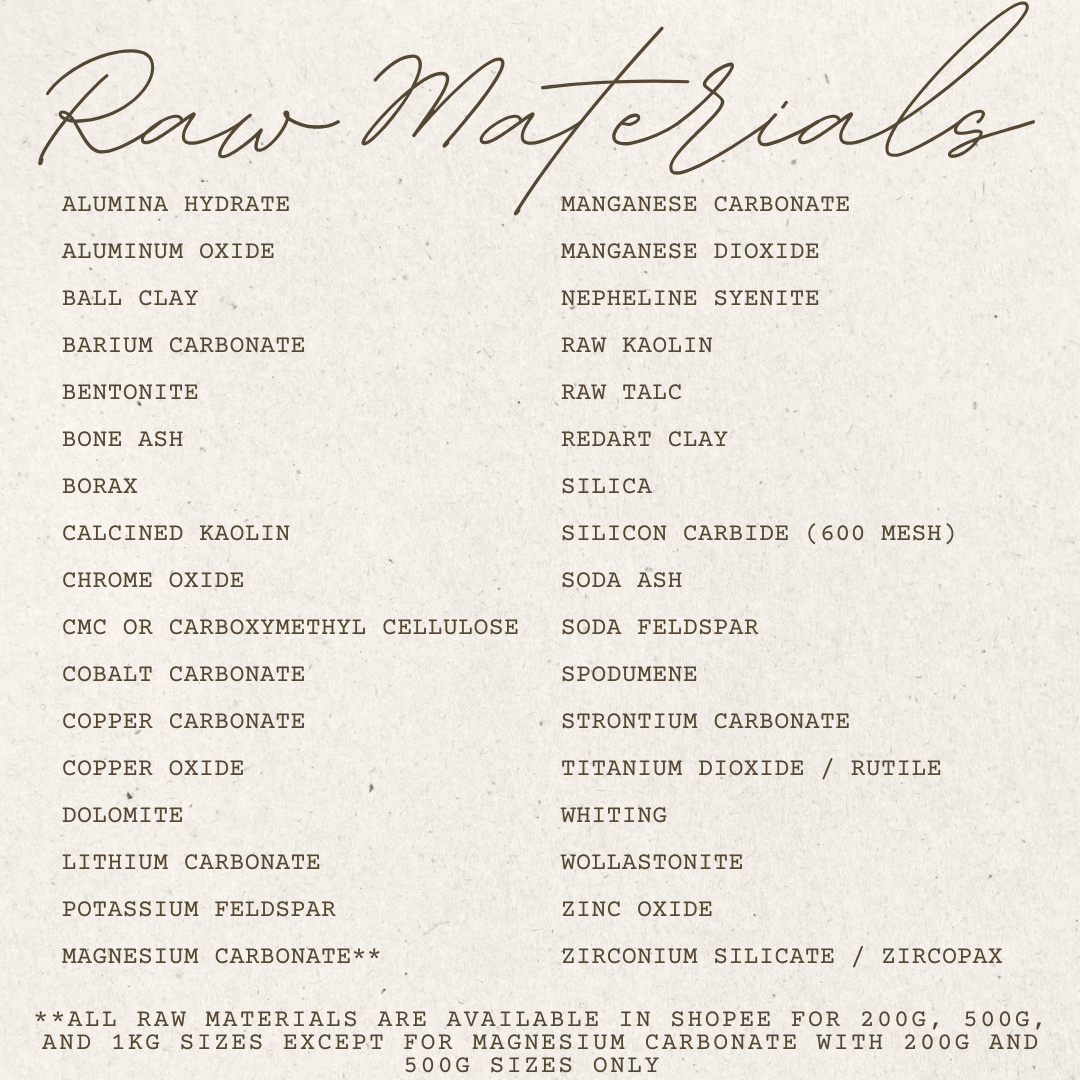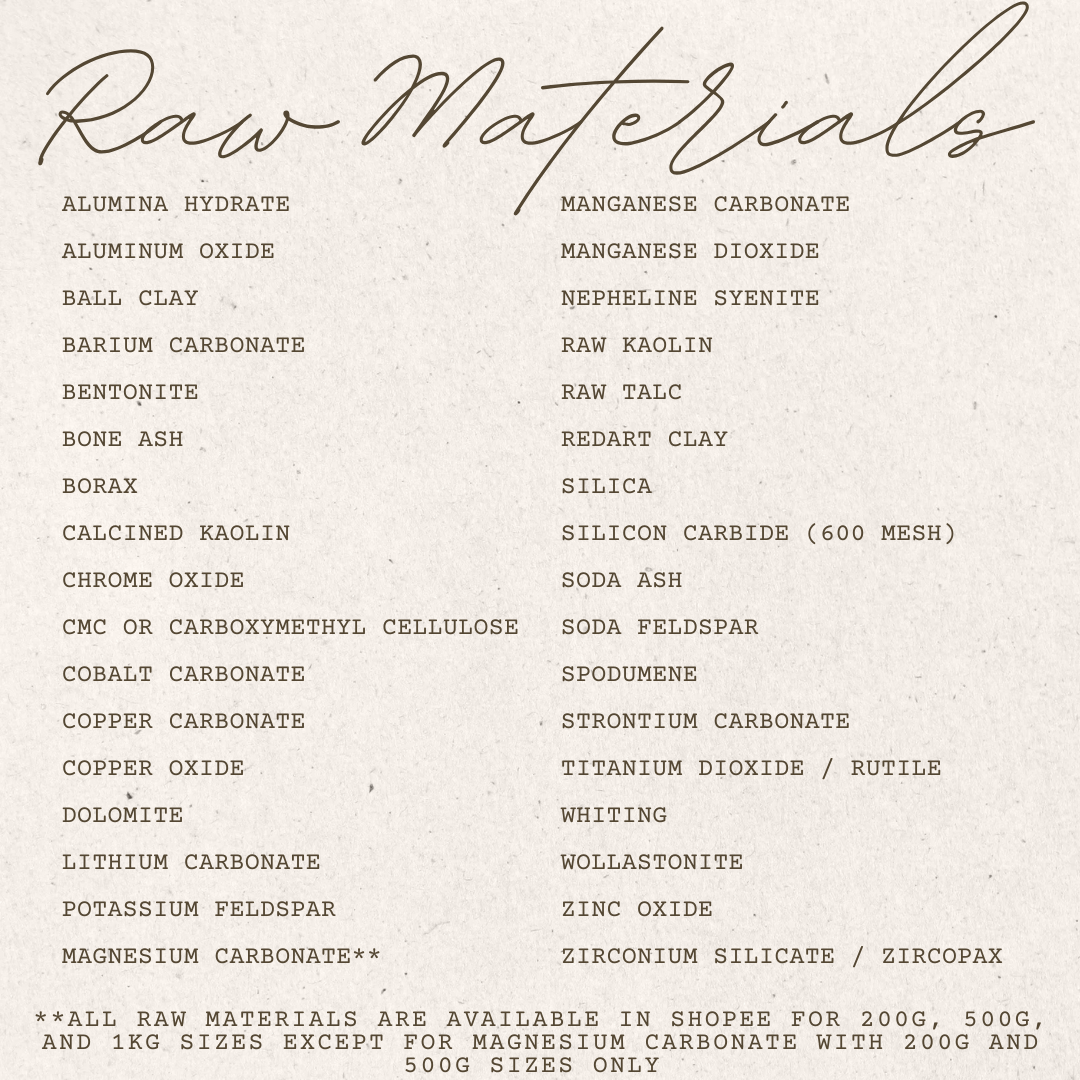Soda Ash, also known as sodium carbonate (Na₂CO₃), is a white, water-soluble, granular or powdered substance widely used in various industries. Its alkalinity and ability to act as a flux and pH adjuster make it an essential material in numerous processes. It is produced naturally from trona ore or synthetically through the Solvay process. Soda ash is primarily used in manufacturing, cleaning agents, and water treatment.
Soda ash, in pottery, is primarily used as a flux in glaze formulations, helping to lower the melting point of silica and other materials during the firing process. This promotes the formation of a smooth, glassy surface on ceramic pieces, enhancing their aesthetic appeal and durability. Soda ash also contributes to the fluidity and texture of glazes, allowing for even coverage and vibrant finishes. Its ability to interact with other glaze ingredients, such as feldspar and clay, makes it a key component in achieving various glaze effects, from glossy to matte surfaces. Additionally, soda ash can be used in slip recipes to help deflocculate clay, improving its workability.
Appearance:
-White, fine granules with a slightly soapy texture when dissolved in water.
-Odorless and non-flammable.
Other applications in different industries:
1. Glass Manufacturing:
One of the primary ingredients in glass production, where it lowers the melting point of silica and facilitates the formation of glass.
2. Water Treatment:
Used to soften water by increasing its pH, helping to prevent scale build-up in pipes and improve water quality.
3. Detergents and Cleaners:
Commonly found in household and industrial cleaning products due to its ability to neutralize acids and break down fats, oils, and grease.
4. Chemical Production:
Utilized as a raw material in the production of sodium-based chemicals, such as sodium silicates and sodium bicarbonate.
NOTE: All Raw Materials are very fine-grained (200-325 Mesh).








